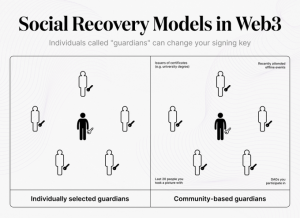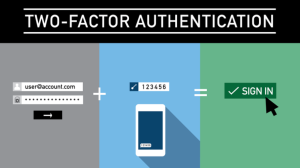Ethereum’s recent upgrade to the ERC-4337 standard is the key to bringing the traditional $3.7 trillion real estate world onto Web3. Implemented in a surprise announcement at ETHDenver, this new protocol standard surprised many people with its list of improvements. So what is ERC-4337 all about?
What is the ERC-4337 standard?
ERC-4337 marks the beginning of a new standard for Ethereum wallets called account abstraction. Simply put, Ethereum wallets that opted for ERC-4337 are now “smart wallets” that live entirely on-chain. Wallets are programmable, just like smart contracts, and enable important benefits such as:
- Account Recovery
- Two Factor Authentication Security
- bundled transactions
- Increase interoperability between EVM-compliant tokens
- Set spending limits on accounts

How can these new features help real estate?
Anyone who has been part of a real estate transaction can tell you one thing: it’s an inefficient process stuck in the Web Zero era. Title searches are slow and not guaranteed to catch everything, people need to drive cars to deliver physical papers to each other, and payments can take days to complete.
For years, many people have looked to blockchain technology for a way to modernize some of these pain points. Commonly discussed enhancements include:
- Using NFTs to represent property titles
- Replacing title searches with Etherscan searches
- Rent Collection Using Stable Coins
- Use of contract signatures instead of notarized signatures
While these ideas sound great, they also come with a lot of hurdles to overcome. Account abstraction will help solve two of the most important problems: account recovery and two-factor authentication.
Account Recovery
Safekeeping cryptocurrency is challenging, and losing access to a wallet containing something important like a deed or a landlord’s operating account would be catastrophic. Just using crypto scares a lot of people, and the idea of having to keep a 24-word seed phrase safe forever is a hard sell to anyone already skeptical of the industry.
Fortunately, ERC-4337 allows users to regain control of their wallets, even if the owner loses their private keys, with the use of “Keepers”.
Guardians are people or entities that users can choose to recover an account in the event of losing access to a wallet. An example of a Guardian would be a trusted friend, a degree-distributing university like NFT, or even, one day, a local bank.

 Image credit: twitter.com/Rohan_0g
Image credit: twitter.com/Rohan_0gERC-4337 decreases the reliance on seed phrases, which greatly helps widespread adoption
By enabling the social recovery of Ethereum wallets, real estate firms are now much more likely to consider using smart contract technology in their day-to-day business.
two factors authentication
Another key feature of ERC-4337 is the introduction of two-factor authentication support. For many, the world of cryptocurrencies is synonymous with being hacked. \With two-factor authentication, users can finally protect their accounts from hackers who gain access to their wallets and within minutes steal all their assets.
Additionally, wallet owners will be able to set limits for transferable amounts. So, if a wallet contains 100 eth, for example, users can restrict an ERC-4337-enabled wallet from sending more than 10 eth without first approving the transaction with two-factor authorization.
The ability to properly secure high-value items with two-factor authentication and spending limits makes it much more likely that real estate firms will feel comfortable using blockchain in the future. Prior to this implementation, there was too much risk involved for traditionally conservative real estate companies to seriously consider using blockchain.

 Image credit: freedom.press
Image credit: freedom.pressCommon 2FA services include Google Authenticator and Authy
Will account recovery and two factor authorization be enough to bring the real estate industry to Web3?
By themselves, of course not. However, the applications of blockchain technology in the real estate sector are endless. For example, it makes payments significantly easier, faster, and cheaper, solves the need to keep inefficient records of physical documents, and gives us a verifiable method of tracking events over long periods of time. It is not so much a question of if real estate companies will start using blockchain, but when it will become common.
As our population becomes more comfortable with technology over time, it seems almost inevitable that blockchain technology will disrupt the real estate industry. With the ERC-4337 update’s quality-of-life improvements like account recovery and two-factor authentication, the path to bringing real estate and Web3 together seems easier than ever.
They want more? Connect with NFT Plazas
Join the weekly newsletter
join our discord
Follow us on Twitter
Like us on facebook
Follow us on Instagram
*All investment/financial opinions expressed by NFT Plazas come from the personal research and experience of our site moderators and are intended for educational purposes only. People are required to fully research any product before making any type of investment.

!function(f,b,e,v,n,t,s){if(f.fbq)return;n=f.fbq=function(){n.callMethod?n.callMethod.apply(n,arguments):n.queue.push(arguments)};if(!f._fbq)f._fbq=n;n.push=n;n.loaded=!0;n.version=’2.0′;n.queue=[];t=b.createElement(e);t.async=!0;t.src=v;s=b.getElementsByTagName(e)[0];s.parentNode.insertBefore(t,s)}(window,document,’script’,’https://connect.facebook.net/en_US/fbevents.js’);






